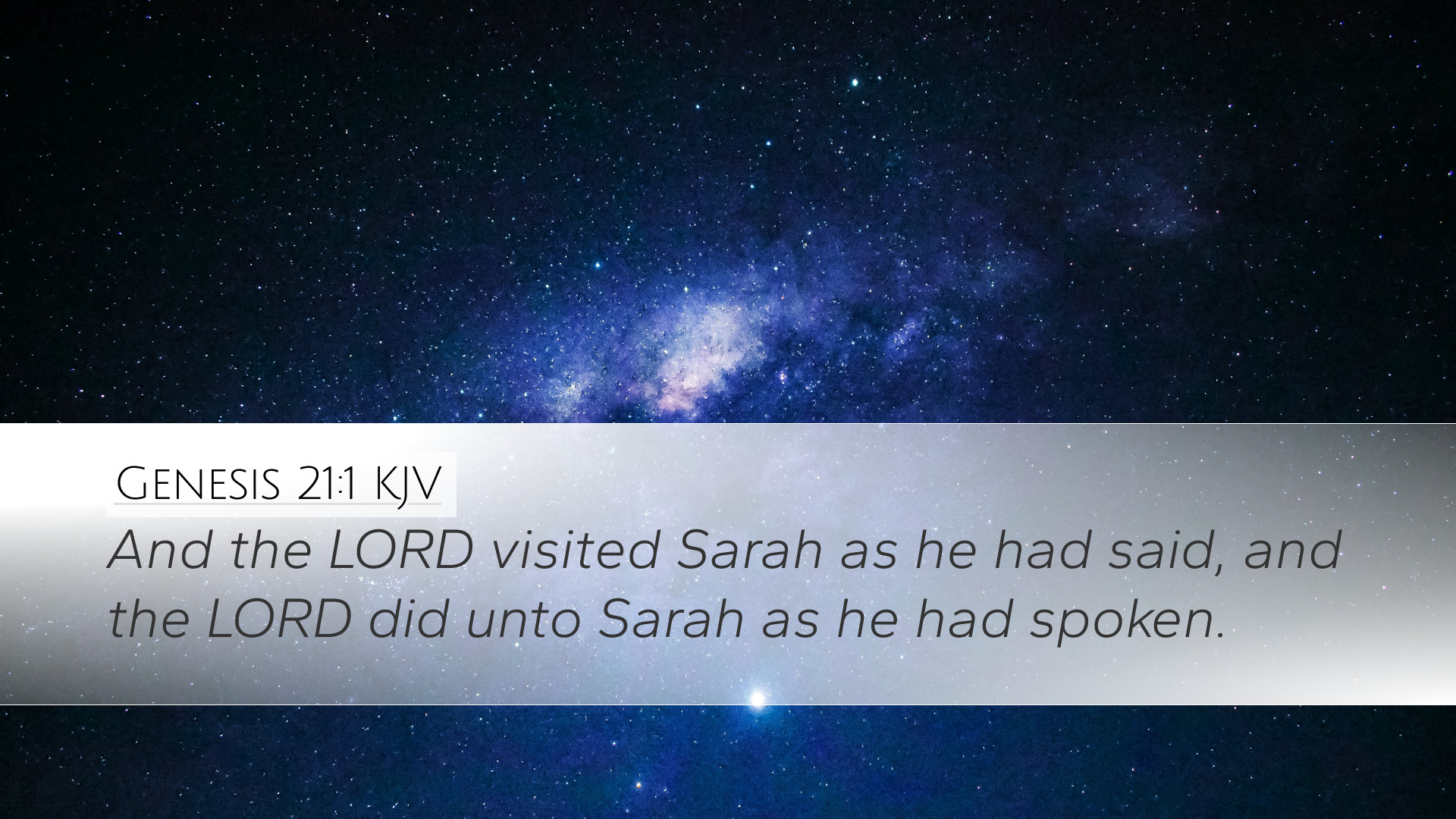Commentary on Genesis 21:1
Verse Reference: Genesis 21:1
"And the LORD visited Sarah as he had said, and the LORD did unto Sarah as he had spoken."
Introduction
This verse marks a significant moment in the narrative of Abraham and Sarah, encapsulating the fulfillment of God's promise. It highlights God's faithfulness and the miraculous conception of Isaac, underscoring themes of divine intervention, hope, and the power of God's word.
God's Promises Are Fulfilled
Matthew Henry emphasizes that the visitation of the Lord signifies not only a physical act but also a fulfillment of the promise made to Abraham concerning the birth of an heir. The phrase "the LORD visited Sarah" indicates God's direct involvement in her life.
- Divine Timing: Henry notes that God's timing is perfect, often coming at moments of apparent impossibility. Sarah's advanced age is a testament to God's power over natural circumstances.
- Personal Attention: The use of the word "visited" suggests a personal relationship where God takes an interest in Sarah's plight, demonstrating His covenant faithfulness.
Faith and Human Experience
Albert Barnes reflects on the faith journey of Abraham and Sarah. Their struggles with doubt and the delay in God's promise serve as a backdrop to this miracle.
- Suffering and Patience: Barnes points out the significance of Sarah's years of barrenness and the duo's reliance on God, illustrating that faith can be tested through trials.
- The Role of Doubt: The commentary addresses the human tendency to hesitate in believing God's promises, yet it is through these trials that God's sovereignty is made evident.
The Miracle of Conception
Adam Clarke expands on the miraculous nature of Isaac's conception, emphasizing God's creative power.
- Supernatural Intervention: Clarke explains that this event underscores God as the Creator, capable of producing life from barrenness.
- Historical Context: This event has historical ramifications as it leads to the birth of the Israelite nation, showcasing God's long-term plan for humanity through the lineage of Isaac.
Theological Implications
The fulfillment of God's promise to Sarah carries profound theological implications for both Old and New Testament believers.
- God's Sovereignty: This verse reaffirms the sovereignty of God over human affairs and the natural order. He orchestrates events according to His divine purpose.
- Faith and Righteousness: Just as Abraham's faith was credited to him as righteousness, so too, the fulfillment of God’s promise serves as an encouragement for believers to hold steadfast to their faith.
Application for Today
This passage encourages modern believers to trust in God's promises, even when circumstances seem impossible. The account of Sarah reminds us of the power of prayer and patience in waiting for God's intervention.
- Encouragement in Trials: Pastors and spiritual leaders can draw from this narrative to encourage congregants who are facing their own struggles with faith and waiting on God.
- Reminders of God's Faithfulness: This story can be used as a reminder that God keeps His promises, providing hope to those feeling discouraged.
Conclusion
Genesis 21:1 is a powerful testament to God’s faithfulness and sovereignty. The insights from Matthew Henry, Albert Barnes, and Adam Clarke provide valuable lessons for all believers, urging a deeper understanding of God's character and a trust in His promises.


